Cotality’s daily dwelling value index shows that across the five major capital city markets, home values rose by 0.6% in July, led by Perth (0.9%) and Brisbane (0.8%).
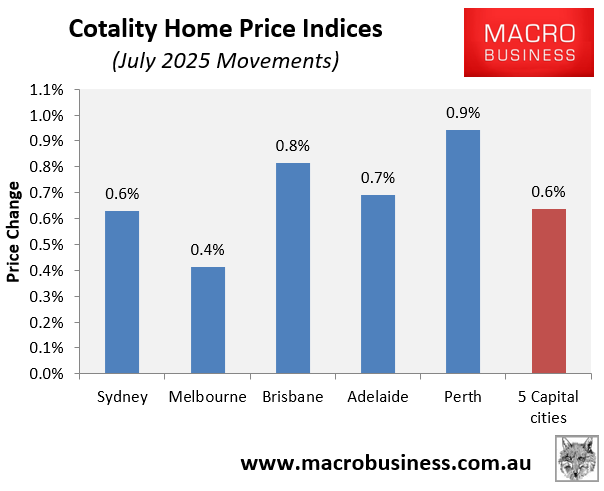
Over the July quarter, values rose by 1.8% across the five major capital cities, with Perth (2.5%) and Brisbane (2.3%) again leading the way.
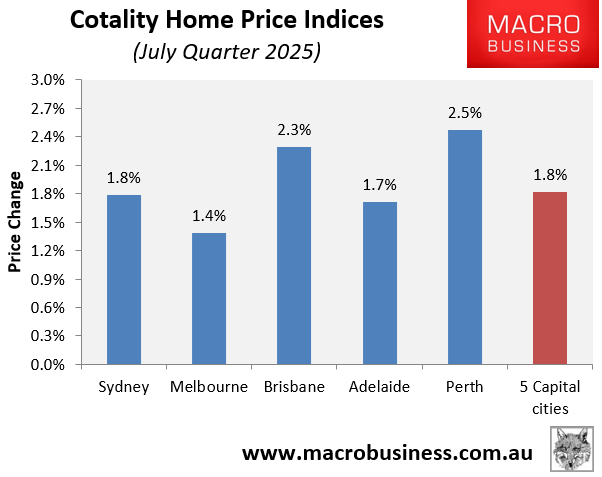
The following chart plots the 28-day change in values across the five major capital city markets.
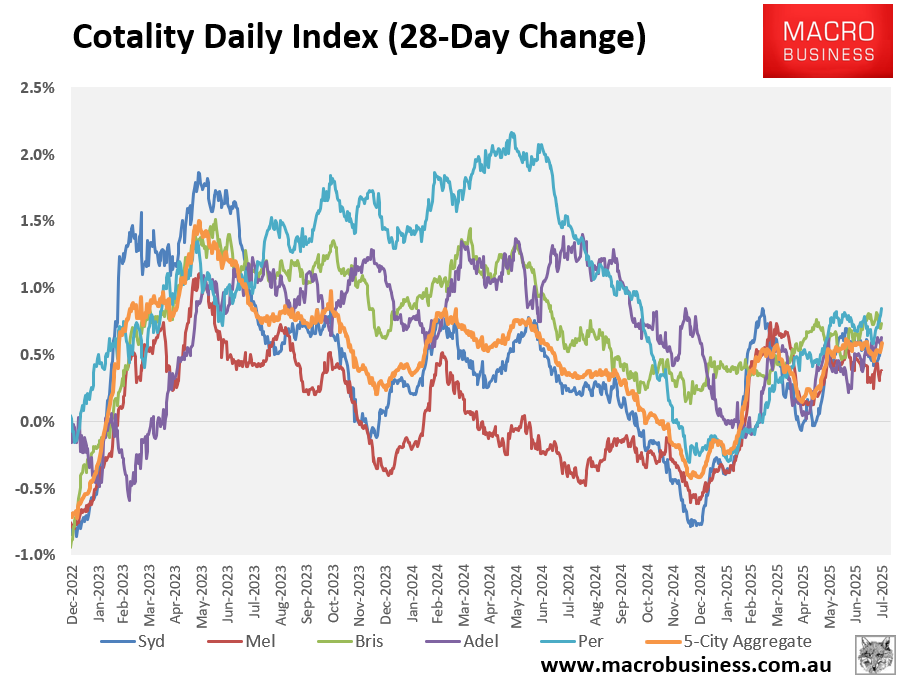
While the results are solid rather than spectacular, there are good reasons to believe that home values will soon launch.
First, auction clearance rates have surged to their highest level in more than a year, which historically has been associated with rising dwelling value growth.
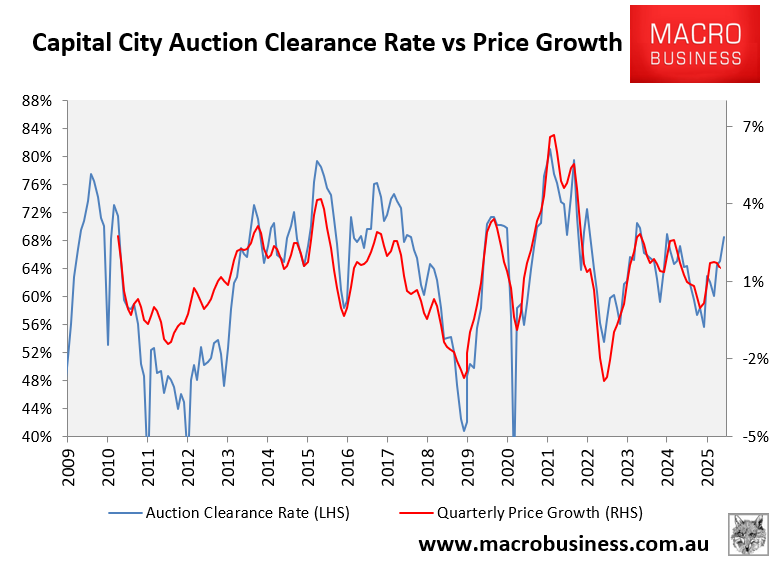
Second, the latest Westpac consumer sentiment survey indicated that house price expectations have risen to a cyclical high, with the “time to buy a dwelling” sub-index also rising.

Third, the Q2 CPI inflation and June labour market data all but guarantee that the Reserve Bank of Australia (RBA) will cut interest rates at next month’s monetary policy meeting.
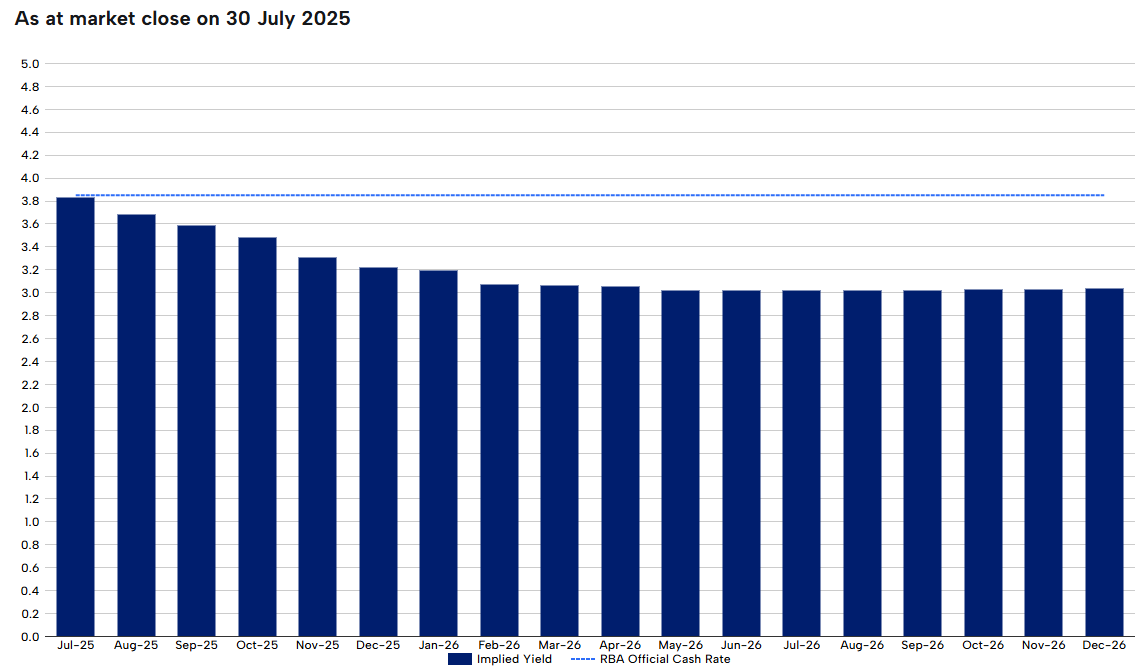
Financial markets also expect an additional two 0.25% rate cuts over the coming year (i.e., 0.75% of easing in total).
An analysis published by the Australian Financial Review showed that dwelling values normally increase by double digits after a rate-cutting cycle.
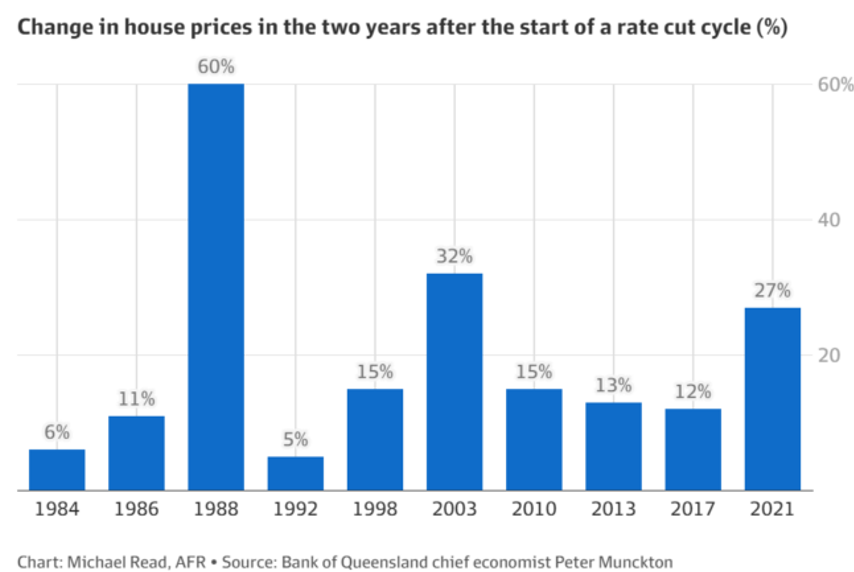
Finally, a series of demand-side policies are scheduled to come into effect, which will stimulate homebuyer demand and prices.
These policies include the Albanese government’s 5% deposit scheme for first-time home buyers, the expansion of the Help-to-Buy shared equity scheme, changes to lending rules excluding student debts from loan serviceability assessments, and several state-based policies, including the generous shared equity scheme announced in the latest Queensland state budget.
The combination of interest rate decreases and government stimulus will inevitably increase property values.
Cotality valued Australia’s total residential housing stock at $11.5 trillion as of 30 June 2025, comprising 11.3 million dwellings.
This meant that the average Australian home was valued at $1,018,000, ranking Australian housing among the most expensive in the world.
Sadly, housing in Australia is about to become more expensive as prices yet again run ahead of incomes.

